Alright – so today we’ve got the honor of introducing you to Kate B Jackson. We think you’ll enjoy our conversation, we’ve shared it below.
Hi Kate B , thank you so much for opening up with us about some important, but sometimes personal topics. One that really matters to us is overcoming Imposter Syndrome because we’ve seen how so many people are held back in life because of this and so we’d really appreciate hearing about how you overcame Imposter Syndrome.
Well, first, I don’t believe anyone ever completely overcomes imposter syndrome. At best, you learn to live with it. I once asked an internationally acclaimed author when imposter syndrome goes away, and his response was, “I’ve been doing this over fifty years. I’ll let you know.” Then he added, with in impish grin, “The awards help, though.”
Exactly a year later—in that very room— I accepted an award for my debut novel. He was right. Awards help, but even then I found myself struggling with the idea I hadn’t deserved the award.
I believe imposter syndrome keeps you striving and it keeps you humble. The minute we believe our own press—the good stuff, at least—humility will be harder to come by.
To keep imposter syndrome in check, however, I do have a technique I swear by.
Some people like to make big lofty goals. I prefer to keep my goals small, tangible, accessible. Each step in the direction of achieving my next goal is a win. For me, success has looked like an aggregation of many tiny steps and small risks. Every time I step forward, even if I’m shaking in my boots, I consider that success.
Finishing a book. HUGE success. Most people who say they will, never do. Letting the first editor read my book. Enduring critique and not tossing the whole manuscript in the trash. Sending out my first query letter to an agent. Signing with an agent. Preparing my book to go out on submission. Receiving my first contract offer for publication. The release of a book. Having the audacity to submit my books for awards. Receiving nominations. Winning an award. Starting all over again with the next book.
I don’t have time to dwell on imposter syndrome because I’m too focused on the next step in my journey. However, it remains a constant companion.
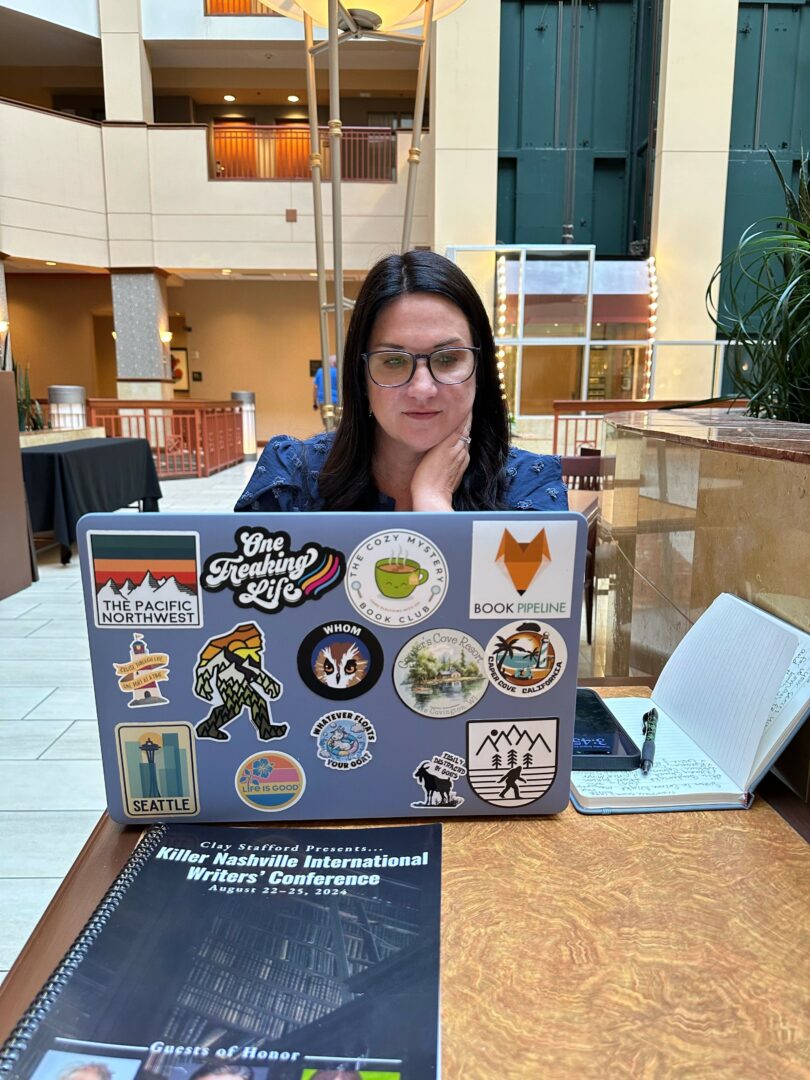
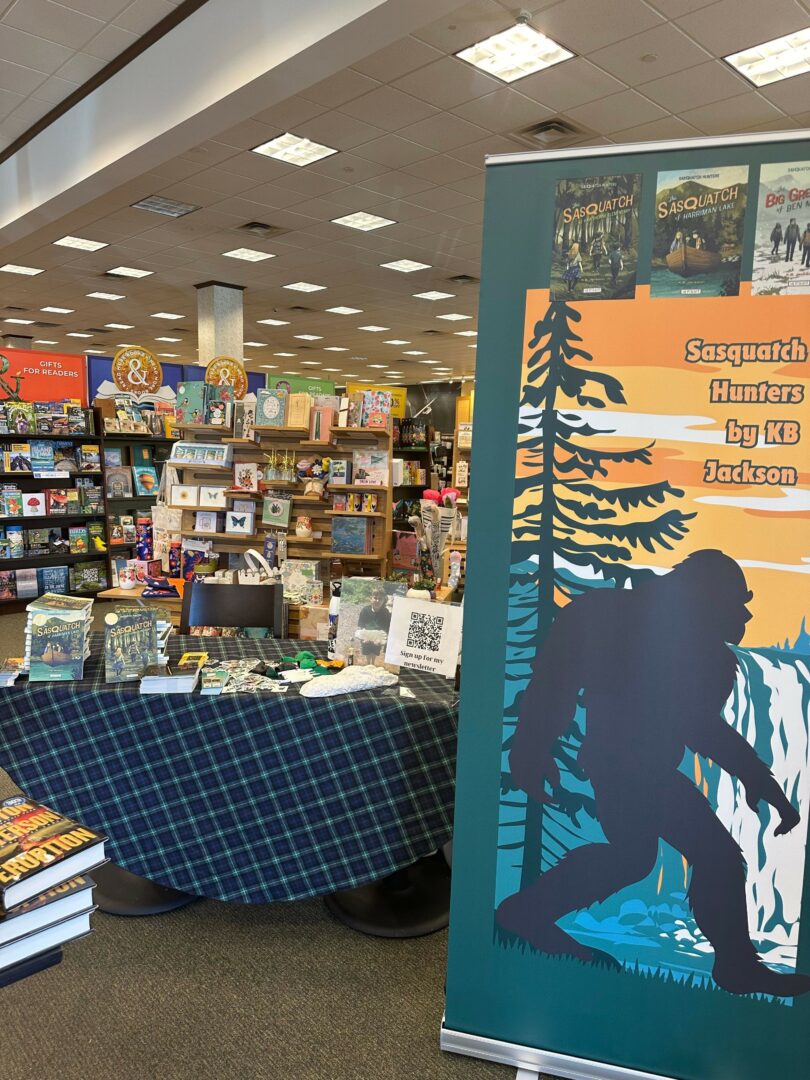
Great, so let’s take a few minutes and cover your story. What should folks know about you and what you do?
I am the author of mysteries novels for grownups, as well as mystery/adventure novels for kids.
As a kid, I was a big reader. In the back of my mind, I always wanted to write stories, but I didn’t know if that was realistic. My grandfather was a published author of nonfiction books about biology, oceanography, and technical writing. I grew up seeing his books on our shelves at home, translated into several foreign languages and wondered what it would be like to see my own books on a shelf.
In 2013 I started a blog at the urging of friends and family who enjoyed my Facebook posts about the shenanigans in my household. I thought I was going to be the next Erma Bombeck or Betty MacDonald. Within a year, however, I was asked to submit a short story to a literary anthology. That was my official foray into fiction. For the next four years, I began work on what would become my first completed novel. I signed with an agent a year and a half later, and within four more years signed three publishing contracts for three series. I now have seven published novels with three different publishers.
My debut, “The Sasquatch of Hawthorne Elementary,” is the first in my middle grade Sasquatch Hunters series (Reycraft Books). It was a finalist for the Anthony Award for best children’s/YA mystery of 2023, the Silver Falchion Award for best juvenile/YA mystery of 2023, and the Agatha Award winner for best children’s/YA mystery. The second and third books in the series, “The Sasquatch of Harriman Lake” and “The Big Grey Man of Ben MacDhui” are 2024 releases. I am currently writing book four in the series, to be released late 2025/ early 2026.
The Sasquatch Hunters series was inspired by my now 19 year old son who was obsessed with the show “Finding Bigfoot” as a kid, but not as much into reading. I wanted to write a book he would be interested in reading. I had no idea this book would ever leave my home, much less take me all over the country and the world talking about cryptids and be nominated for (and win!) awards. I do several school visits each year, which is my favorite thing to do.
In addition to the kids series, I also write two mystery series for adults.
The first, the Chattertowne Secrets mysteries (Level best Books) are inspired by my small hometown, but if anyone thinks they recognize themselves, I’ll deny it. Book one, “Secrets Don’t Sink” was a 2024 Silver Falchion Award finalist for best mystery novel. “Secrets in Pink” released in July 2024, and I’m currently working on the third book in the series which will release July 2025.
My other series is The Cruising Sisters Mysteries (Tule Publishing) about two middle aged sisters living full time on a cruise ship, where an inordinate amount of murders take place onboard. I liken it to Murder She Wrote meets Love Boat with a touch of Golden Girls thrown in for good measure. The First two books, “Until Depths Do Us Part” and “A Matter of Life and Depths” released in 2024. The third book in the series, “Frightened to Depths, releases January 2025.
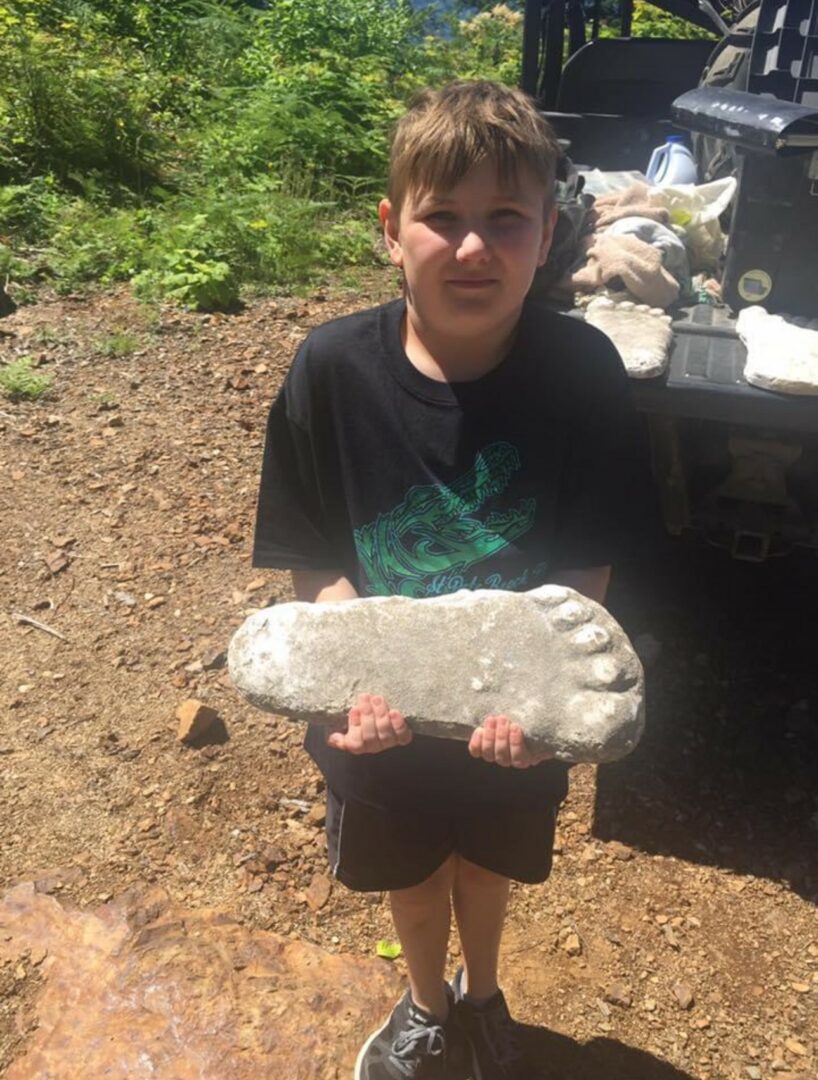
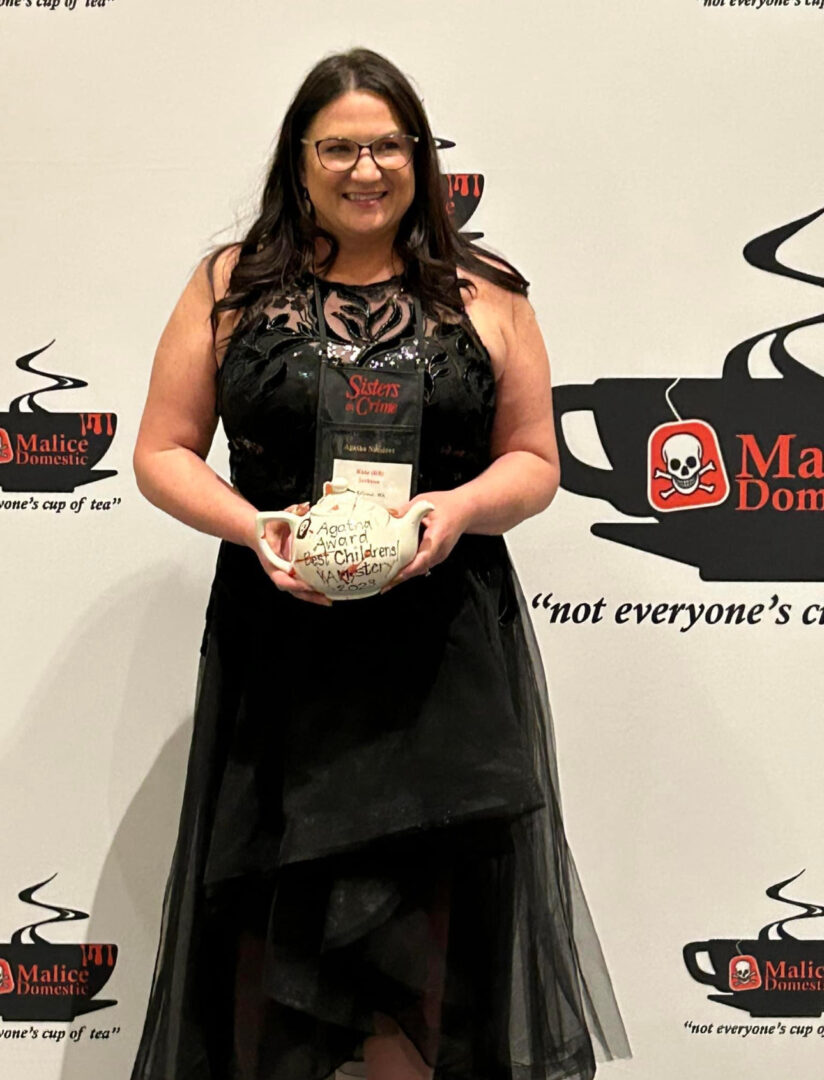
There is so much advice out there about all the different skills and qualities folks need to develop in order to succeed in today’s highly competitive environment and often it can feel overwhelming. So, if we had to break it down to just the three that matter most, which three skills or qualities would you focus on?
I was a stay at home mom of four for nearly thirty years when I became a published author. I was fifty years old when my first book released. There are times that I feel I need to make up for lost time, or I feel regret that I waited so long to start this journey. But then I realize that I wasn’t ready before now. I wasn’t ready in my life circumstances (young kids in school and sports and dance, husband launching a business), and I wasn’t ready personally. Ten years of therapy helped me gain confidence, learn how to set boundaries, get thicker skin, and invest in myself.
The most important qualities an author needs to survive in the publishing world are persistence and resilience. You will receive rejection. You will receive critique. Ten years ago, I’m not sure I would have been able to survive those things. Now I know how to cope with them, utilize what I can from them, and toss out what’s not useful in my journey.
I do believe that setting small goals keeps me from getting overwhelmed.
And honestly, you’ve got to keep your expectations low. Write because you love to write. Create because the story is inside you. The odds of being a New York Times Bestseller are low. Most authors don’t break even, much less make enough money to live on. Most books sell less than a thousand copies.
This is a marathon, not a sprint. Momentum builds. While you’re waiting for your first book to sell, be writing your next book. When I signed with my agent, I had written books one and two in one series, and the first book in the next series. She sold both of those series within six months of each other.
And lastly, make connections with other writers. The writing experience is a solitary one, but being part of the writing community helps me not feel alone.
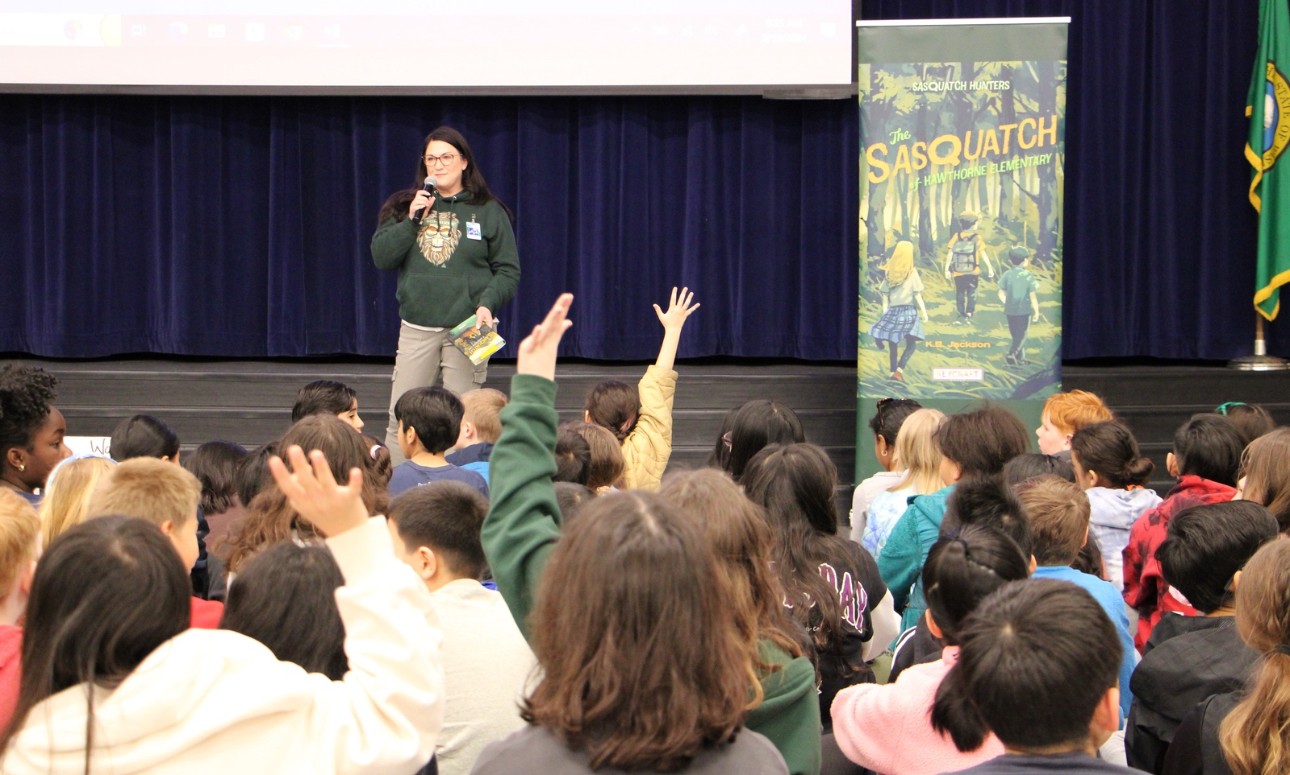
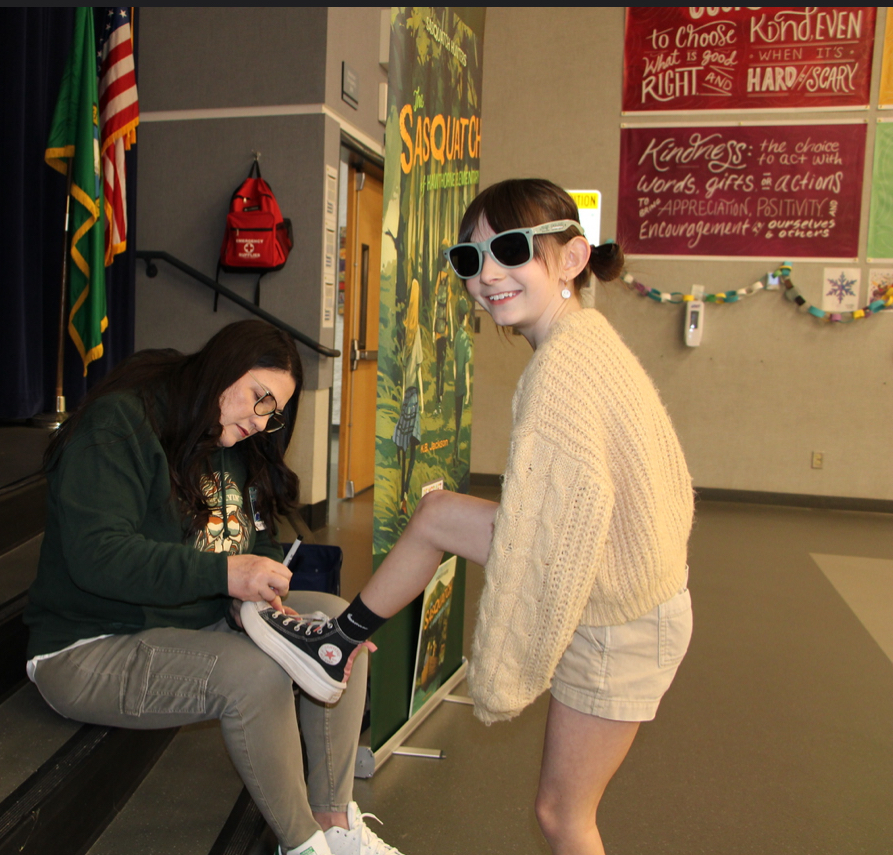
As we end our chat, is there a book you can leave people with that’s been meaningful to you and your development?
I have several books that I recommend for new writers. The main thing to remember is these aren’t Bibles. They are guides. If the techniques work for you, great. If they don’t, let it go.
Stephen King’s “On Writing.” It’s an autobiography, but also filled with insightful nuggets.
“Understanding Show, Don’t Tell: And Really Getting It” by Janice Hardy
“Save the Cat Writes a Novel” by Jessica Brody
Show, don’t tell is a common critique many new authors receive from editors. An example would be, don’t tell me he’s mad, have his face turn beat red, his brow furrow, and his nostrils flare.
Save the cat is a technique that was originally put forth by Blake Snyder for screenwriting. It identifies the fifteen beats you typically find in a story. It utilizes aspects of the hero’s journey and Joseph Campbell’s plot embryo.
I didn’t use to be a plotter (someone who does a full outline and knows every scene before they write it), I was more of a pantser, meaning I wrote by the seat of my pants. Once I was writing multiple books a year on deadline, I needed to be more organized. I now do a full outline based on the 15 beat/ 3 act structure that I learned from save the cat writes a novel.
Contact Info:
- Website: https://KBJackson.com
- Instagram: https://www.instagram.com/kbjacksonauthor/
- Facebook: https://www.facebook.com/KBJacksonAuthor
- Linkedin: https://www.linkedin.com/in/katebjacksonauthor/
- Twitter: https://twitter.com/KateBJackson
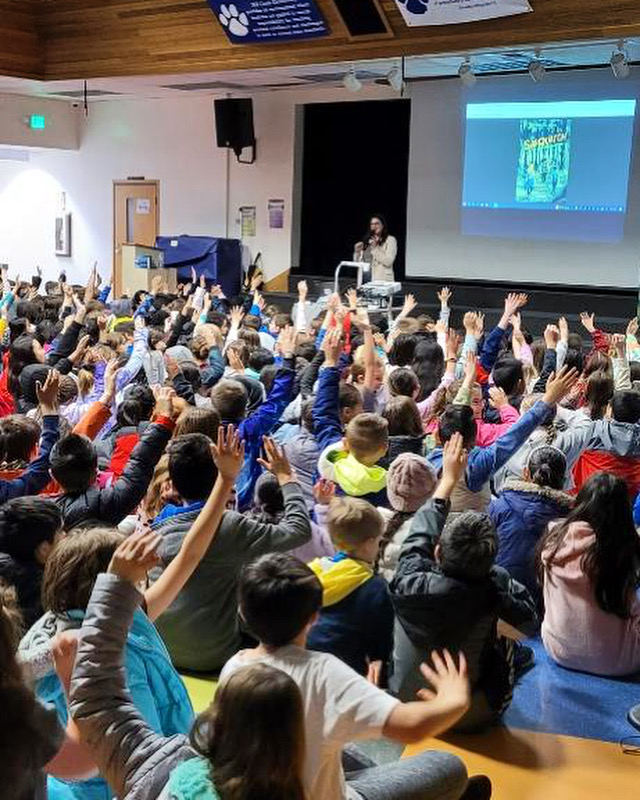
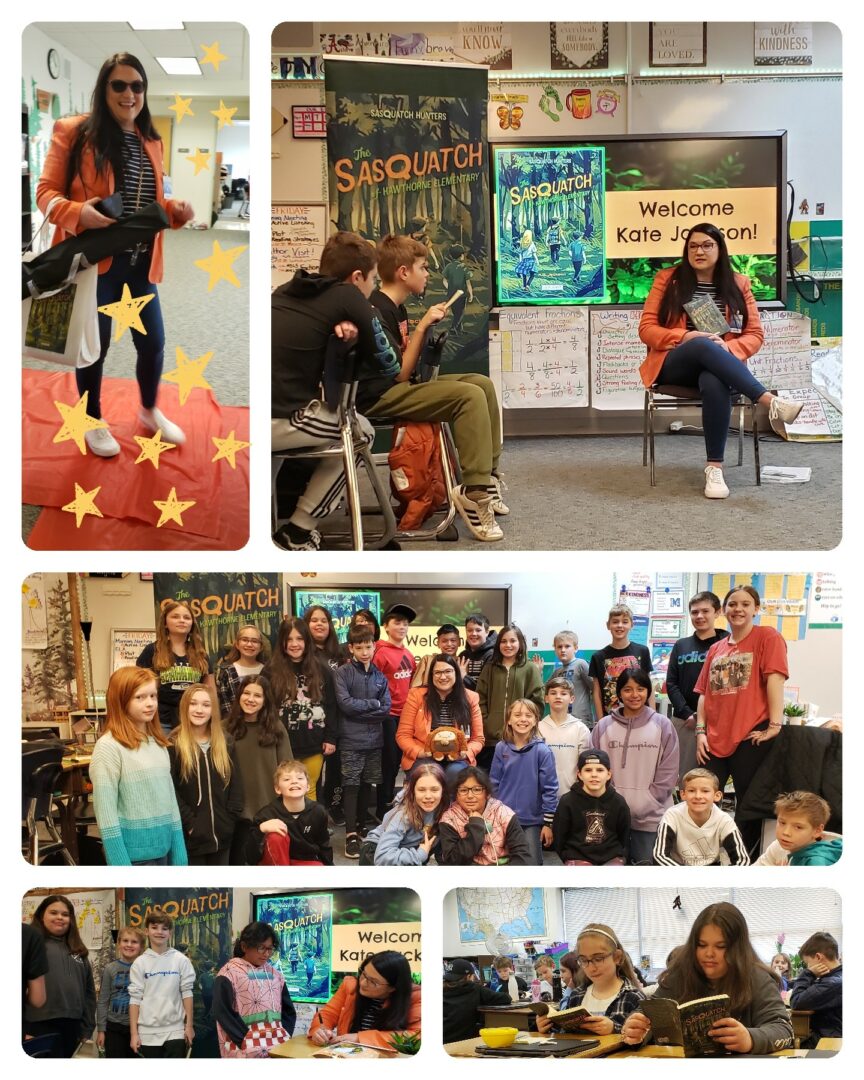
so if you or someone you know deserves recognition please let us know here.




